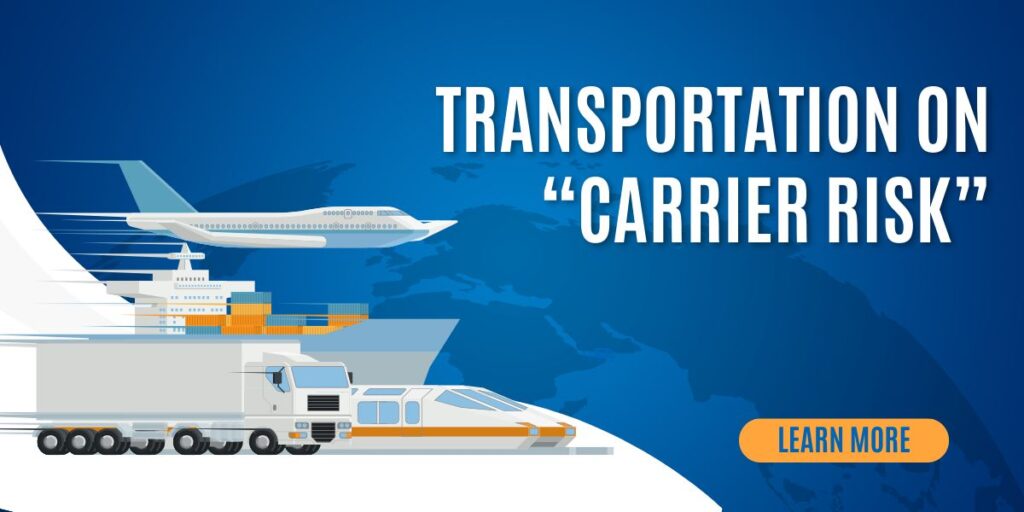Understanding Transportation on “Carrier’s Risk” and Choosing the Best Marine Transit Insurance
In today’s dynamic business environment, many industries expect carriers to provide additional services such as warehousing, express delivery, and point-to-point solutions. Intriguingly, several large corporates like Tata Steel, Indian Oil Corporation, Berger Paints, and Dabur India have stopped insuring their cargo for transit risk, compelling transporters to move consignments on “Carrier’s Risk.”
What Does Transportation on “Carrier’s Risk” Mean?
Transportation on Carrier’s Risk means the carrier assumes responsibility for any loss or damage to goods during transit. This shifts the risk from cargo owners to the transporter, unless contractual terms specify otherwise. This concept is crucial in shipping and logistics agreements.
Despite this, many carriers hesitate to accept such responsibility and may refuse to transport uninsured cargo. To remain competitive, some carriers offer two freight rates: one with insurance and one without, even knowingly transporting uninsured cargo.
How to Manage Carrier’s Risk Movements?
Carriers carrying consignment on their risk have two choices:
- Retain the risk themselves: Expose their financial stability to potential losses
- Transfer the risk to an insurer: Insure the cargo under marine transit insurance policies
Most carriers prefer to transfer the risk to mitigate their financial exposure.
But how can a carrier insure cargo not owned by them? This appears to contradict the insurance principle of “Insurable Interest.”
Insurable Interest and Carriers
Contracts between carriers and cargo owners usually hold carriers absolutely liable for cargo loss or damage. Freight bills often reflect deductions for losses incurred, effectively making the carrier an owner in terms of financial interest. This grants them a legitimate insurable interest in the cargo and justifies purchasing marine transit insurance in their name.
How to Choose the Best Marine Transit Insurance?
When selecting a marine transit policy, keep these factors in mind:
Type of Coverage:
- All Risk Coverage (ITC-A): Comprehensive protection against accidents, theft, and perils except exclusions.
- Named Perils Coverage (ITC-B or ITC-C): Covers only specified risks; more limited.
- Coverage Limits: Sufficient sums insured with proper per shipment and per location limits.
- Exclusions: Review what is not covered, including specific goods or damages.
- Deductibles: Amount paid out-of-pocket before coverage activates; higher deductibles mean lower premiums but potentially higher costs during claims.
- Mode of Transportation: Ensure coverage fits sea, air, or land transport specifics of your cargo.
- Destination Coverage: Confirm insurance applies throughout the journey, including transshipment points.
- Duration: Single shipment or open policy for multiple shipments over a set period.
- Insurance Provider Reputation: Choose experienced insurers with strong claim support.
- Cost vs. Coverage: Balance premium cost against the extent of protection.
- Claim Process: Verify that claims process is clear and efficient.
About the Author
Mr. Abad Khan, a Delhi University graduate with a postgraduate diploma in insurance from the Insurance Institute of India, possesses over 20 years of experience in corporate and transporter insurance. Operating as BimaSathi through AK Insurance Marketing Pvt. Ltd., he offers risk management and claims services across India.
Contact: abad@bimasathi.in | www.bimasathi.in


